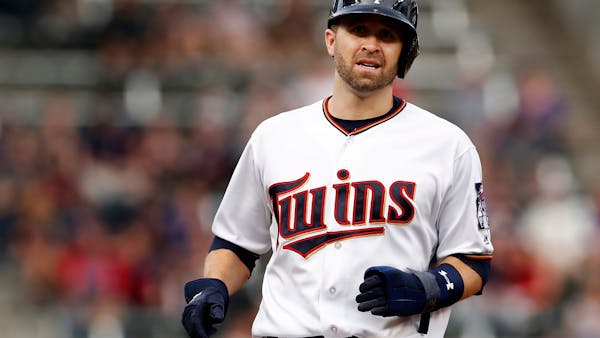The Twins' strategy-by-necessity of starting three consecutive rookie pitchers against the defending American League champions is turning out about as well as could have been reasonably expected. Meaning, not well at all.
Adam Wilk was battered by Cleveland in the first game, Adalberto Mejia was spring-showered out of his chance in the second, and the Twins fell out of first place in the AL Central for the first time since May 9 with a pair of losses to the Indians, 9-3 and 6-2 at soggy Target Field.
"We kind of anticipated having some fun this series, and competing, and it hasn't really worked out," Twins manager Paul Molitor said. "Our pitching hasn't really given us much of a chance."
It's sort of reached a breaking point, actually. Injuries and a relentless schedule have left the Twins to dredge their farm system for starting pitching, just as their chief competition for the division lead has arrived, and the results have been ugly: Three outcomes that felt preordained from the first pitch.
"You have a lot of momentum coming in here, a lot of excitement for the big weekend, and it didn't bode so well for us today, on all accounts: pitching, defense, swinging the bats," said second baseman Brian Dozier, who contributed a home run in the nightcap, about the only offense the Twins could generate in that game. "Really, they beat us in every facet, both games."
Wilk, making his fifth major league start, fared even worse than Nik Turley one night earlier, surrendering six runs, eight hits and three walks while recording only 10 outs in Game 1. The lefthander, called up from Class AAA Rochester before the game and designated for assignment immediately after it, was a best-of-bad-options choice for the Twins, considering he had given up six runs in 12 innings for the Red Wings.
"We don't have a lot of experienced options, at least big-time experience, but he's got a little bit," Molitor said. "Cleveland's hot right now. A lot of their guys are swinging well from the righthand side, I get that. But of all the people we could consider, his name kept coming up."
The Indians wasted no time revealing the flaw in that logic. After two quick outs in the first inning, Jose Ramirez smashed a long home run. Wilk immediately began pitching more tentatively, walking two of the next three hitters, then giving up a two-run single to Bradley Zimmer.
"We've done this more common as of late — [giving up] two-out rallies and still putting up crooked numbers," Molitor said. "They can really hurt you."
They all but ended this game early. Wilk threw 37 pitches in the first inning, passed 60 in the second and wound up throwing 92 in his 3⅓-inning stint. His day ended when he gave up a single and two doubles in the space of four batters to open the fourth inning, the last a Ramirez double that drove in two more runs.
The Twins hoped to fare better in Game 2 behind Mejia, whose eight previous career starts had alternated between promising and petrifying. He escaped a bases-loaded situation in the first inning, surrendered solo homers to Austin Jackson and Lonnie Chisenhall in the fourth, but was keeping it close when rain interrupted with Cleveland leading 2-1 in the fifth.
When the game resumed 75 minutes later, Mejia was on the bench, and the Twins' hopes were sunk by a couple more homers: Chisenhall's second of the game was a three-run blast off Tyler Duffey, and Francisco Lindor added a solo shot off newly recalled Alan Busenitz.
"It seemed like when we made mistakes today, they hit them over the fence," Molitor said. "And when they made mistakes, we hit them to the [warning] track."

The Hamline Elite Meet, already in rare air, presents a co-ed look
Bevy of defensive playmakers are available in Round 2 of the NFL draft after historic offensive run
Twins bring momentum on road despite Angels Stadium struggles

Neal: McCarthy mania sweeps through Vikings draft party

